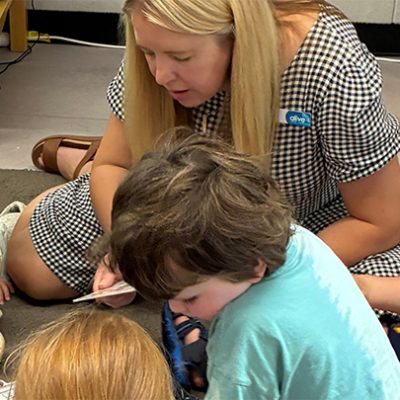
Parents should not feel guilty if they struggle to find time to read aloud to pre-schoolers because it won’t stop them from learning how to read, a literacy expert says. Source: The West Australian.
Australian Catholic University Laureate Anne Castles said there was a common misconception that kids who did not quickly pick up reading skills had not been read to enough from when they were tiny.
Speaking ahead of Book Week in response to recent surveys showing a drop in the number of parents reading aloud to their kids, Professor Castles said it was important to understand this would not stop children from learning to read.
“There’s a lot of guilt among parents that if they don’t read to their child they won’t learn how to read, but there is no evidence to support this,” she said.
“There is also shame around a child not being able to read before they start school, but that’s why children start school at an age when they have more cognitive control. Reading is a very complex process that needs to be taught explicitly.”
Professor Castles said parents who wanted to help prepare kids to learn to read should focus on teaching them their letters and letter sounds.
However, reading aloud to kids of all ages did have important benefits, such as encouraging bonding, sparking their interest in books, improving imagination and building vocabulary.
“I would never say ‘don’t read to your children’,” she said. “It’s just don’t read to your children with the aim of teaching them to read.”
Professor Castles said a recent study tracking the eye movements of pre-schoolers when being read to showed they paid little attention to printed words.
“They spent more time looking at the person reading to them, and the pictures,” she said. “They aren’t looking at the weird squiggles on the page because they don’t yet know what they are.
“Some kids find learning to read easy, some find it hard, but how much you read to them isn’t really a factor in that.”
FULL STORY
Australian Catholic University literacy expert Anne Castles explodes myth reading to kids teaches them to read (The West Australian)






